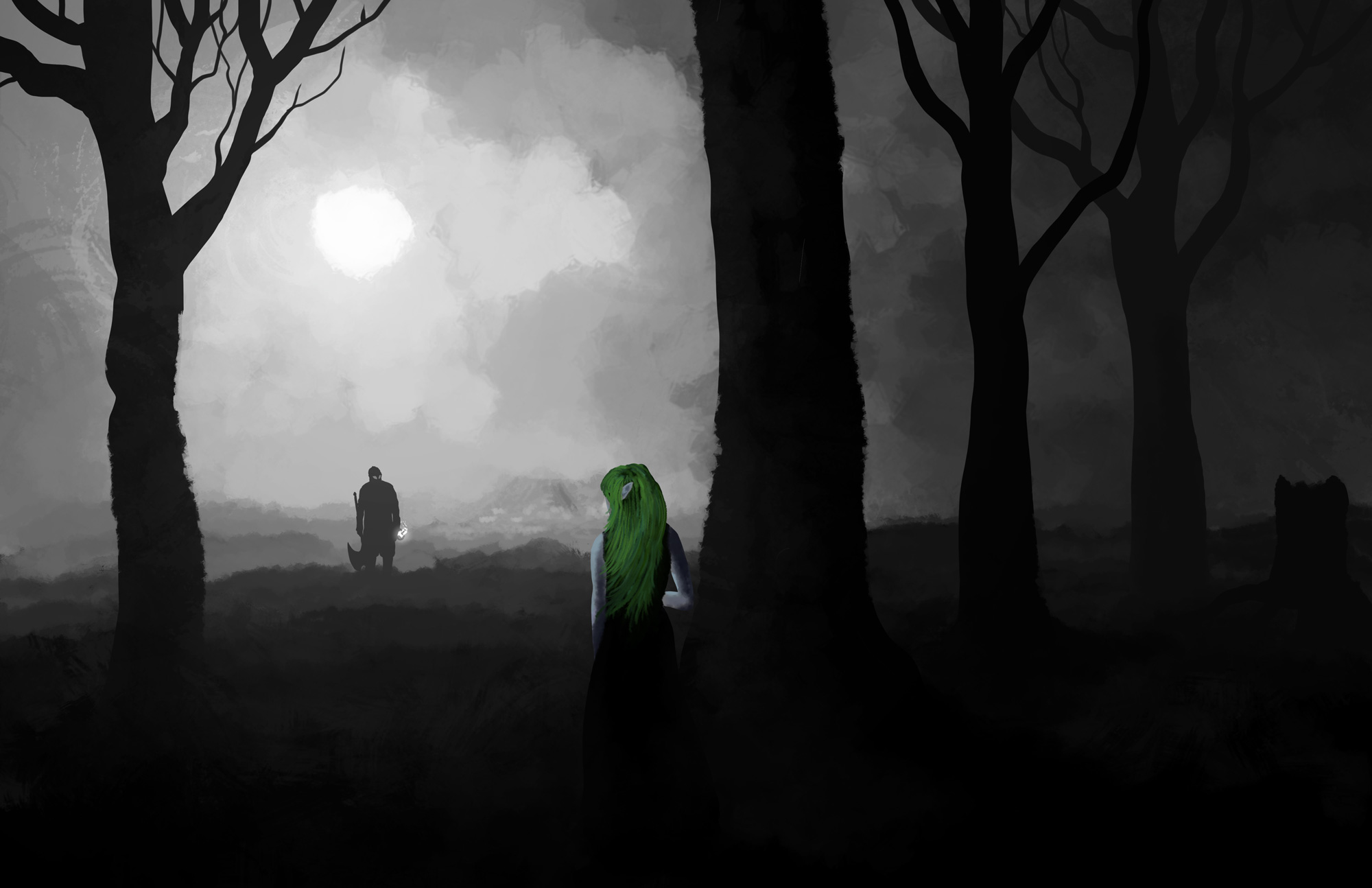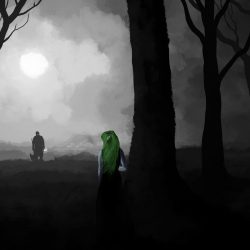The Judges of Light
“Let not any one pacify his conscience by the delusion that he can do no harm if he takes no part, and forms no opinion. Bad men need nothing more to compass their ends, than that good men should look on and do nothing.” – John Stuart Mill
Patron: Uriel, archangel of repentance
The Frisians of northern Germany had a legend. Twelve ‘law-speakers’ of the Frisians were called to the Court of Charlemagne, having been fully conquered by the Franks. Charlemagne demanded that the law-speakers write down the laws of their people. When they were unable to do so after several days, Charles the Great gave them three choices: execution, enslavement, or to be set adrift in a rudderless boat. The twelve law-speakers chose the last option.
As they had drifted directionless in their discussions of the law, so did they drift at sea, praying for redemption, when a man bathed in light, with an axe of gold, appeared to them. He brought their ship back to land, and gave them the laws.
This story came with the Norse who settled in Iceland, and the Huldufólk learned of the Norse God of Justice, Forseti, who passes judgement from his shining throne, bringing law and justice to the land. Modern Huldufólk know this thirteenth man to be Uriel, descended from heaven to redeem the repentant and instill order. Yet the story of Forseti was deeply ingrained in the brave Huldufólk of Iceland; it is said that Uriel, on nights where he calls Huldufólk closest to him to action, appears to them with a golden axe in his hand.
Motivations: Helping people is a great way to deal with the evil in the world, but it doesn’t deal with the core problem: the people committing evil deeds. Whether it’s serial killers, muggers, drug cartels, or monsters in suits, The Judges of Light see that evil has a face, and knows that the best way to save the flock from wolves in the night is to flush out the wolves with the blinding light of justice.
Shining light on evil people doesn’t necessarily mean removing the person from the world entirely. Some of the Judges of Light are sporting enough to even give the Friends of God the opportunity of convincing them to repent. Unfortunately, most of the Judges would tell you, people with evil corrupting their hearts can rarely be redeemed, and more often than not, the evil doer must be destroyed.
Goals: Improving the world by destroying evil. The Judges are both judge and executioner, finding the worst elements in society and making sure they receive what they are due.
Beliefs Invoked: There’s a Karmic justice to the world, and those who bring harm to others will eventually receive the justice they are owed. Those who live by the sword will end up dying by the sword.
Criticism: The Friends ask what gives The Judges the right to decide who can be redeemed, and who has to be executed. They believe The Judges spend too little time attempting to reform those doing evil, and are too quick to reach for their swords.
The Bringers of Fire see The Judges merely punishing people stuck in the cogs of the machine rather than trying to fix the machine themselves.
More than a few Blessed have noted that the philosophy of The Judges borders uncomfortably close to the violent and disavoyed former Mormon belief in Blood Atonement — killing people who had sinned so that their souls could be redeemed through the sacrifice of their blood.
The Judges note that, when there is an entire faction of the Banished focused on turning people towards evil to make the world worse, it is naive to think all those people can be redeemed without shedding their blood.

